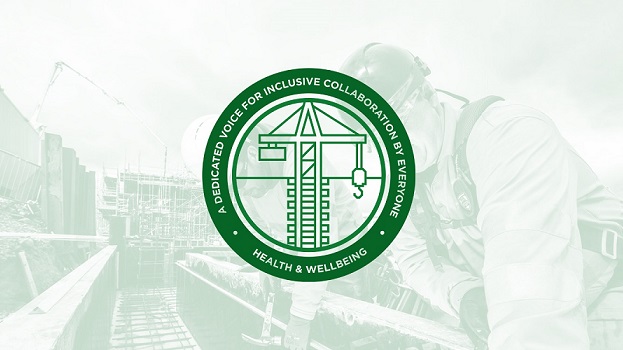Feeling isolated? You are not alone. A.D.V.I.C.E has some suggestions.

Loneliness or isolation can affect anyone at any time and at any stage of life. A 2016 survey by the British Red Cross and Co-Op, highlighted by the Campaign to End Loneliness, found that a fifth of the UK population are always or often lonely. Two-thirds of the population wouldn’t feel comfortable admitting it. It is a taboo subject for many who fear opening up about their feelings. Many people have been trying to cope with isolation or loneliness during the Covid-19 pandemic.
Loneliness is not always the same as being alone. Even people that have lots of social contact, are in a relationship or are part of a family may still feel lonely, especially if they don’t feel understood or cared for by the people around them. Likewise, you can be alone and feel peaceful and content. Many factors cause feelings of loneliness, but where Covid-19 has caused social isolation, it is frequently because of the forced separation from those we love, bereavement or the lack of social connections with other people. Long-term loneliness is associated with an increased risk of mental health problems including depression, anxiety and increased stress. It is also linked to physical health issues such as cardiovascular impairment, chronic pain, and fatigue.
Loneliness and gender
The Office of National Statistics (ONS) analysed the characteristics and circumstances associated with loneliness in England using the Community Life Survey 2016 to 2017 and found that women reported feeling lonely more often than men. They concluded that this could relate to differences in how men and women reflect on their personal experiences of loneliness. Some research suggests that men may be more reluctant than women to report undesirable feelings such as loneliness.
How loneliness can affect your health
- Heart problems
- Depression
- Higher stress
- Decreased memory
- Risk of drug abuse
Stay connected
- Stay in touch with others, whether via video calls or a good old-fashioned phone call. As guidance changes, meet face-to-face while socially distanced if this feels comfortable to you.
- Keep to routines where possible.
- Consider using talking therapies such as cognitive behavioural therapy (CBT), which may help and is often available through company Employee Assistance Programmes or your local NHS. CBT can help you manage your problems by changing the way you think and behave.
- Remind yourself of all the positive things in your life, however small or big they may be.
- Control the controllable. Change what you can, but it helps if you can recognise and accept when something can’t be changed.
- Try to switch off from social media stories where people are sharing their ‘perfect’ lives. Remind yourself that you do not know what their lives are like away from the screen.
Give to others
- Check in on family, friends and colleagues who may be living on their own.
- Consider how you may be able to volunteer. You could help out at a local food bank, volunteer for the NHS as a ‘check in and chat’ volunteer, or support a scheme such as Age UK’s neighbourly volunteering.
Remain physically active
- Physical exercise helps to release endorphins in the brain. These are natural chemicals in the body that have a ‘feel good’ or pain-relieving effect. Try to get some physical activity into your routine.
- There are online resources and apps available to help you exercise safely where you live, whatever your fitness level.
Alone time
- If you prefer to manage on your own, the charity Mind suggests planning your week ahead and aiming to do something you enjoy.
- Look at things you could do that you wouldn’t normally have time for. If you aren’t commuting, for example, you could use the time you are saving to meditate, do some cleaning or to prepare and cook new recipes.
Useful contacts
Are you concerned about someone who is isolated? Or just want to find a different social circle or someone to talk to? These resources may help.
Childline
T: 0800 1111
W: childline.org.uk
A counselling service for children and young people.
Meetup
W: meetup.com
More than 9,000 local groups with the goal of making friends and/or improving themselves or their communities.
Mental Health Foundation
W: mentalhealth.org.uk/coronavirus/coping-with-loneliness
Support for mental health concerns.
Mind
T: 0300 123 3393 (09:00-18:00, Mon-Fri except bank holidays; or text 86463)
W: mind.org.uk
E: info@mind.org.uk
Local support and advice on medication and other treatments.
Nextdoor
W: nextdoor.com
Free private social network for you and your neighbours to talk online.
NHS
W: nhs.uk/conditions/stress-anxiety-depression/feeling-lonely
Provides a mood assessment and advice on what you can do.
Samaritans
T: 116 123
W: samaritans.org
A safe place for people to talk any time they like, in their own way.
The Silverline
T: 0800 4 70 80 90
W: thesilverline.org.uk
A free helpline for older people across the UK offering information, friendship, befriending calls and links to local groups and services.
This collection of resources was collated by A.D.V.I.C.E., a cross-industry group set up in 2019 to share accurate health and wellbeing information with transport and construction workers. More information about the A.D.V.I.C.E. group
Tags
- Health and Wellbeing
